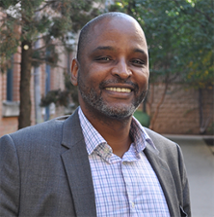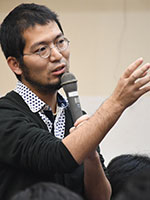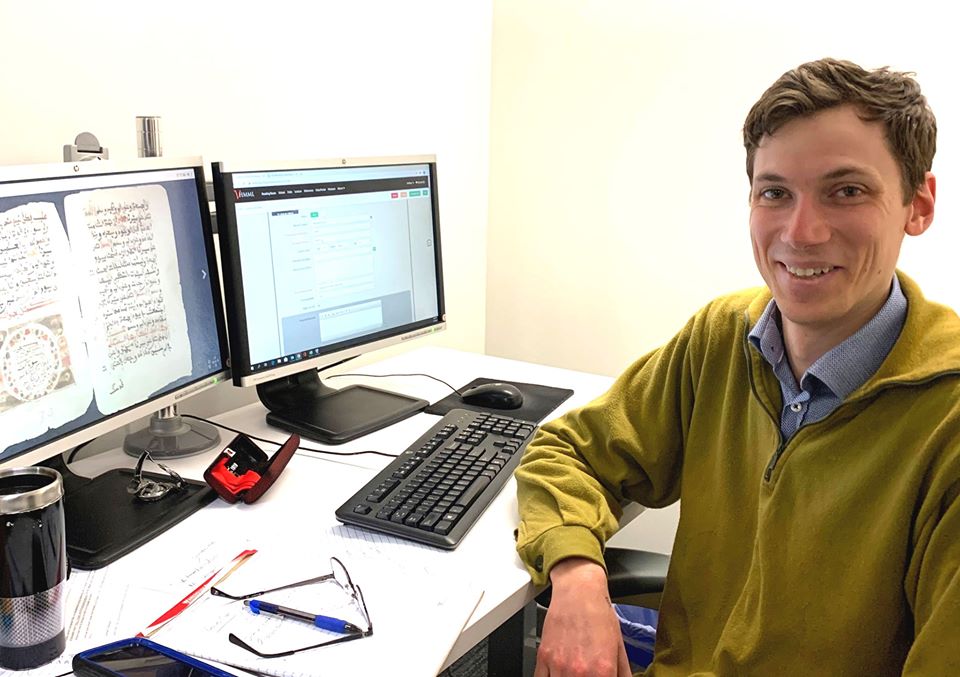Zekeria Ahmed Salem (PhD, Lyon) is the director of ISITA and associate professor of political science at Northwestern. His research engages critical debates about religion and politics, especially interconnections between state and religious authority, identity politics, Islamic knowledge and political power in contemporary African societies. Prior to joining Northwestern, he taught political science and African studies for nearly two decades at the University of Nouakchott, Mauritania.
Ahmed Salem’s 2013 monograph, Prêcher dans le Désert: Islam, Politique et Changement Social en Mauritanie (Paris, Karthala, with English translation forthcoming) examines major transformations that shaped a new public sphere and changed cultural life in the Islamic Republic of Mauritania. Based on more than twenty years of fieldwork, archival research, life history collection, and close readings of Islamic doctrinal texts and fatwas, Ahmed Salem’s research reveals how Mauritanian Muslims across social strata shape their political and religious lives through engagement with available bodies of religious knowledge. Read the review of Prêcher dans le Désert in the New York Review of Books (November 23, 2017 issue).
In other publications, Salem has examined Islamic preachers in urban settings, elections in Senegal and Mauritania, lawyers and politics, and Mauritania as a “frontier state.” He has contributed numerous chapters to edited collections and published articles in the Journal of North African Studies, Politique Africaine, Cahiers d’études africaines, Canadian Journal of African Studies, Nomadic Peoples, Annuaire de l’Afrique du Nord, and L’Ouest Saharien.
Salem’s current major research project investigates how Bilad Shinqīṭ (today the Islamic Republic of Mauritania) has become in a little over a century a label of excellence in Islamic knowledge and normative authority with an astonishing global reach. Set in the longue durée (19th-21th century), the project examines the outsized influence of Mauritanian Islamic scholars (‘ulama), religious texts, and institutions of learning as an entry point towards examining the relationship between knowledge and power in global Islam. Drawing on previously underexplored sources as well as on new original data, the project uses archival research, ethnography, observant participation, and cultural analysis to reconstruct how Mauritanian tradition, scholars and institutions of Islamic learning gradually gained an outsized global currency as major sources/bearers of normativity and scholarship. In so doing, it shows how patterns of constitution and dissemination of traditional scholarly knowledge and religious authority in the Muslim world have been and continue to be negotiated or reconfigured in ways that allow for non-central Islamic cultures to play key roles in the making of transnational Islam.
Others research projects cover new Sufism, public debates over blasphemy, and the role of Muslim public intellectuals in African societies.
Rebecca Shereikis (PhD, Northwestern) is ISITA’s associate director. She is a historian of West Africa with interests in colonial legal institutions, African Muslim responses to colonialism and Islamic law in African contexts. She has conducted research in Mali and Senegal on how inhabitants of western Mali navigated the legal terrain established by the French colonial state in the early twentieth century. She has published in the Journal of African History and the Encyclopedia of Women and Islamic Cultures.
For ISITA, she works with the director on programming, grant writing, visitors, communications and the Institute's web presence.
Xena Amro
Graduate Assistant
Xena Amro is a second-year Ph.D. student in Comparative Literary Studies, with a home department in Middle East and North African Studies. She is a Mellon Cluster Fellow in Global Avant-Garde and Modernist Studies. Her research interests include Islamic manuscripts, travelogues, global modernism, translation studies, modern Arabic literature, and twentieth-century European novels.
Xena has a bachelor's degree in English Literature from the Lebanese American University and a master's degree in English Literature from the American University of Beirut. Her master's thesis, entitled, “Paris in 1855 and 1922: Ahmad Fāris al-Shidyāq and James Joyce,” employed global modernist theories to investigate how Al-Sāq ‘alā l-sāq (Leg over Leg) already accomplishes many things claimed for one of the central texts of modernism, James Joyce’s Ulysses (1922), such as experiments in narrative form, its polyglot linguistic texture, and breadth of cultural and literary references. Her research focused on the concept of foreignness, whereby a native language is made foreign to its own readers. She has a chapter contribution in an edited volume on al-Shidyāq to be published soon with Barbara Winckler in Reichert Verlag.




